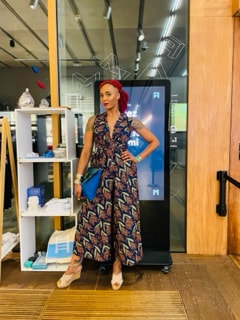
Walshy Fire: Pull Up
Last night I attended the screening and art talk of Walshy Fire: Pull Up at the Pérez Art Museum Miami moderated by Dr. Patricia J. Saunders, Caribbean Studies Scholar, and Professor at the University of Miami who is also featured in the documentary. The documentary showcases the global impact of Walshy Fire who is a Chinese-Jamaican-American DJ (Leighton Paul Walsh). The documentary, directed by Jamaican-American filmmaker Alicia G. Edwards who is a beacon of light for the culture shared during the artist talk the rationale behind the documentary as well as the challenges in pitching this idea to PBS American Masters. She discussed having to justify why this was an important story to tell as well as the importance of “telling the culture from the inside.” Edwards shared her love of Dancehall as well as her enjoyment of her “bruk out” days attending Dancehall parties in the early 90’s when Miami was just ripe on the scene.
The discussion between Saunders, Edwards, and Walshy Fire was informative, funny, and inspiring. Walshy Fire talked about “finding your passion,” the importance of “uncomfortability and shame” to get you moving,” the significance of “reinventing yourself” and “in life, you have to have an element of danger. If you’re not willing to jump the fence for it” then what is it worth?
A profound moment occurred when an audience member shared that he suffered from chronic pain and that he felt healed while listening to Walshy Fire’s music. Walshy Fire responded with humility that “It’s healing him to hear him say that.” It is understood by many that music is a connector, it has the power to heal, educate, and it transforms lives. Another important element is that Dancehall music as well as the spaces where they occur are spiritual, “There’s a conversation between the DJ and the audience creating a kind of opportunity for consecrating the space and seeing the dancehall space as a spiritual space” (Saunders 2023).
Walshy Fire’s impact on Dancehall culture is massive, and as a Miami native and resident, we embrace and celebrate his fervent love, drive, and passion for music which he demonstrates through his artistry. South Florida is undeniably a Caribbean music, culture, and dance extravaganza, particularly Dancehall! This discussion is particularly important as just this morning on Good Morning America, which featured an exposé on Miami culture, subsequently and not surprisingly Afro Caribbean music and culture, Dancehall specifically was not represented. This is problematic—but I digress. Walshy Fire states, “In Miami you get Jamaican culture, central, south, American culture, Caribbean culture, then you get Black American culture, white American culture all mixed into this pot” (Walshy Fire 2023) so not acknowledging this representation, especially on such a major platform continues to perpetuate the myths of what Miami culture is and who and what it looks like (i.e., no one Black with African roots).
Final Thoughts:
I am writing about Dancehall performance in my dissertation research, so it was important for me to attend the event. Thank you, Alicia G. Edwards, for advocating for the culture, thank you PBS American Masters for providing the platform, thank you Pérez Art Museum Miami for recognizing the importance and value of the work, thank you Dr. Saunders for you cultural academic prowess, and thank you to Walshy Fire for your unwavering love for music and Dancehall culture which you so generously share with the world.
Last night I attended the screening and art talk of Walshy Fire: Pull Up at the Pérez Art Museum Miami moderated by Dr. Patricia J. Saunders, Caribbean Studies Scholar, and Professor at the University of Miami who is also featured in the documentary. The documentary showcases the global impact of Walshy Fire who is a Chinese-Jamaican-American DJ (Leighton Paul Walsh). The documentary, directed by Jamaican-American filmmaker Alicia G. Edwards who is a beacon of light for the culture shared during the artist talk the rationale behind the documentary as well as the challenges in pitching this idea to PBS American Masters. She discussed having to justify why this was an important story to tell as well as the importance of “telling the culture from the inside.” Edwards shared her love of Dancehall as well as her enjoyment of her “bruk out” days attending Dancehall parties in the early 90’s when Miami was just ripe on the scene.
The discussion between Saunders, Edwards, and Walshy Fire was informative, funny, and inspiring. Walshy Fire talked about “finding your passion,” the importance of “uncomfortability and shame” to get you moving,” the significance of “reinventing yourself” and “in life, you have to have an element of danger. If you’re not willing to jump the fence for it” then what is it worth?
A profound moment occurred when an audience member shared that he suffered from chronic pain and that he felt healed while listening to Walshy Fire’s music. Walshy Fire responded with humility that “It’s healing him to hear him say that.” It is understood by many that music is a connector, it has the power to heal, educate, and it transforms lives. Another important element is that Dancehall music as well as the spaces where they occur are spiritual, “There’s a conversation between the DJ and the audience creating a kind of opportunity for consecrating the space and seeing the dancehall space as a spiritual space” (Saunders 2023).
Walshy Fire’s impact on Dancehall culture is massive, and as a Miami native and resident, we embrace and celebrate his fervent love, drive, and passion for music which he demonstrates through his artistry. South Florida is undeniably a Caribbean music, culture, and dance extravaganza, particularly Dancehall! This discussion is particularly important as just this morning on Good Morning America, which featured an exposé on Miami culture, subsequently and not surprisingly Afro Caribbean music and culture, Dancehall specifically was not represented. This is problematic—but I digress. Walshy Fire states, “In Miami you get Jamaican culture, central, south, American culture, Caribbean culture, then you get Black American culture, white American culture all mixed into this pot” (Walshy Fire 2023) so not acknowledging this representation, especially on such a major platform continues to perpetuate the myths of what Miami culture is and who and what it looks like (i.e., no one Black with African roots).
Final Thoughts:
I am writing about Dancehall performance in my dissertation research, so it was important for me to attend the event. Thank you, Alicia G. Edwards, for advocating for the culture, thank you PBS American Masters for providing the platform, thank you Pérez Art Museum Miami for recognizing the importance and value of the work, thank you Dr. Saunders for you cultural academic prowess, and thank you to Walshy Fire for your unwavering love for music and Dancehall culture which you so generously share with the world.
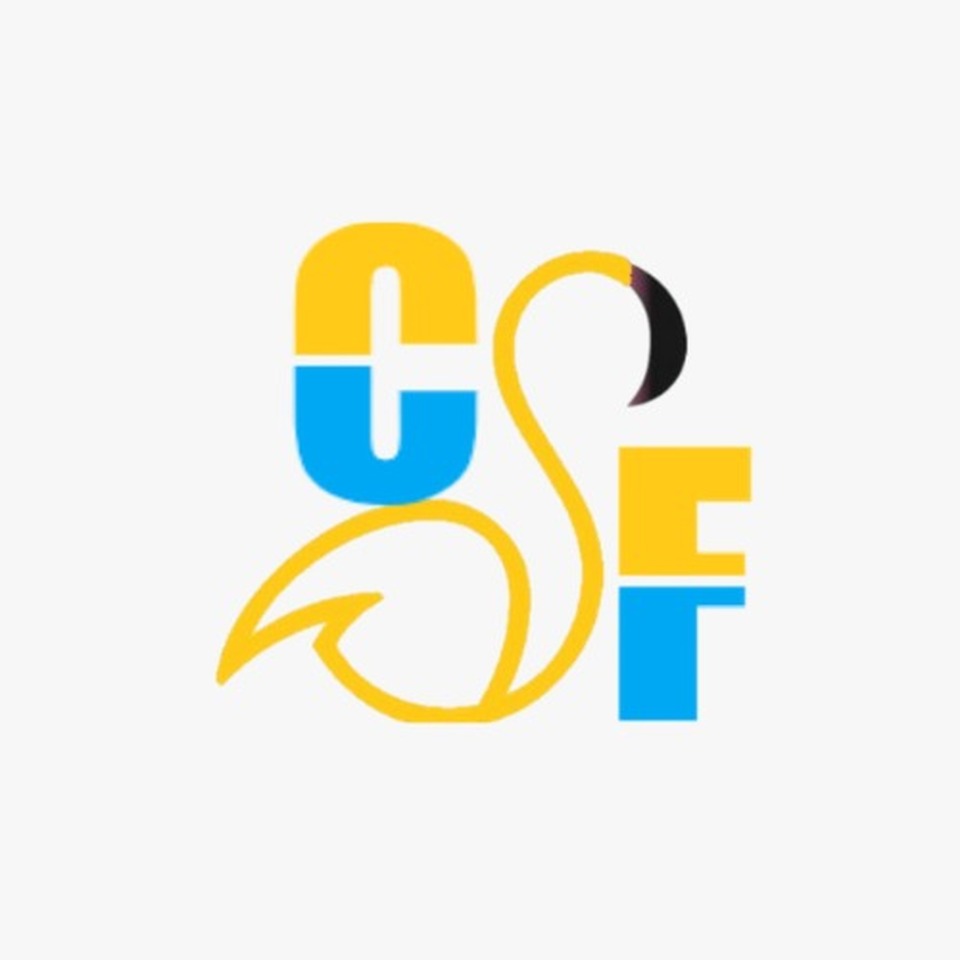
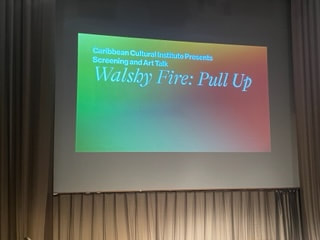
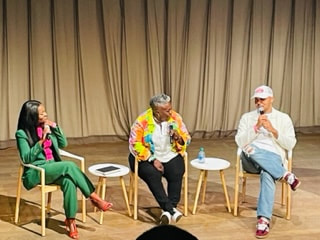
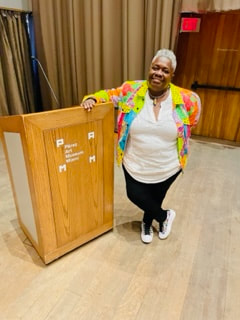
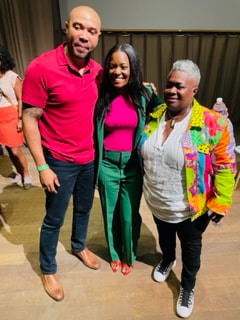
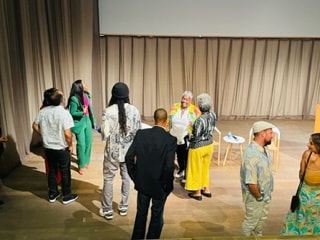
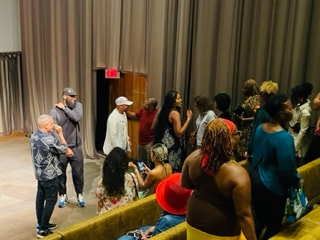
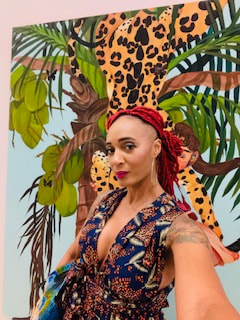
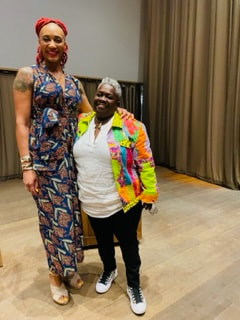
 RSS Feed
RSS Feed